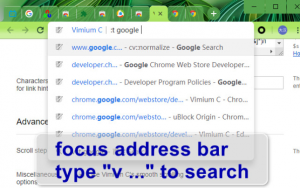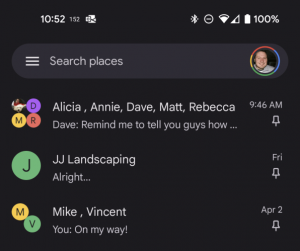Without proper call tracking, not only is an account sacrilegious, it is denied the chance to optimize for call oriented ads and the spending efficiency that comes with them.
Marketers involved in online advertising swear themselves into the order by repeating measure everything for a full night vigil. That solemn night inscribes within us the passion to endlessly track every data point that is associated with our campaigns. Phone calls are no exception to our vows.
The little phone number that appears in your header or footer has a story to tell. Yes, the one that you thought was inconspicuous. It is either innocent or guilty of causing conversion leakage for your campaigns.
While advertisers often track clicks and conversions to the bitter end, using the data to improve an account’s ROI, phone call tracking is often neglected or ignored entirely.
The absence of phone call data means that there is no tangible way of associating the value of the phone calls with the PPC that is initiating them. This means that the value of a PPC program becomes severely undervalued as sales and leads gained from phone calls are not attributed to the PPC that began those calls.
An example

A savvy technophile named Eustace is looking for a management software solution for his 10 man team of developers. He begins his research process with a search on Google. After a few seconds of browsing the search results page, your ad catches his eye with the memorable headline, “Management Geeks Use.” Eustace clicks the ad and lands on your simple, clean, and pleasing page, featuring your product and encouraging a free demo.
He has questions, so he decides to give you a ring on the phone number provided on the landing page. After a thorough Q and A, Eustace is convinced, and he makes the purchase over the phone with the charming sales representative, Agatha.
Now, the phone call was either tracked as a conversion or it was not depending on the marketing set up of your page.
If it was not tracked, the money you paid for the clicks Eustace made on both your general search ad and branded ad seems to have been wasted. Because these ads seem to be wasting money, you begin to lower the amount you’re willing to bid on them, reducing their exposure on the results page.
Eustace’s long time rival, Joe, begins his search for management software after hearing about Eustace’s recent managerial stardom. He enters a search on Google and your ad doesn’t appear because your competitors are still willing to make the bid you now feel is too much. You never get a chance to offer Joe the same competitive edge that Eustace has and Joe goes out of business.
In the case that you do have call tracking set up, Eustace’s call is recorded as a valuable conversion.
The advertisements that Eustace clicked on before making a call from your landing page are associated with the phone call, and they are not undervalued. In fact, you find that you have room to increase bids on these ads while still improving your ROI. Everything is well in the world and Joe is able to find your advertisement, gain your software, and go on rivaling Eustace while giving you more business
How it Works

Before dynamic numbers existed, a business’s website and landing page may have only had two numbers, one for the business and one for the landing page. This would allow advertisers to see how many calls either entity was getting, but it was extremely difficult to associate a unique user’s click with a phone call as everyone called the same number.
With dynamic numbers, a unique number is created for each visitor by using a pool of tracking numbers allowing an advertiser to associate a phone call with their clicks.
A JavaScript code dynamically changes the phone number in the HTML code on the website so that it corresponds with the ad and keyword that was used in the search engine. If a user clicks an ad and goes to the landing page, the call they make to the landing page’s number would be associated with that click, unmistakably presenting the cost of that phone call.
After a while, the phone numbers get recycled in a manner that allows a business to work with a small pool of numbers while still being able to track unique visitors’ calls.
Call tracking is priced reasonably. It generally starts from $ 30 per month, scaling with the amount of numbers required and whether you’re using toll free numbers or not.
Depending on what type of business you operate, call tracking may either be an unnecessary expense or a mandatory asset for the continuation of your ROI positive PPC advertising.
Businesses must remember that people who call are usually further down the sales funnel. A business should be happy to take calls who want to know what time you open or how to get to your store. These are calls that have a high likelihood of an eventual purchase.
Tips for Tracking
After the tracking is implemented, there are always ways to make your data work further.
- Only count calls that are “real.” Length is usually a decent determiner of whether a call was useful for your business.60 seconds is a good standard to begin with, but every business is different and it is ultimately up to the business to decide what length of phone call is worthwhile for tracking.
- Only run your call campaigns while you have people available to answer the calls. While this may seem obvious, many businesses neglect to practice this resulting in wasted spend as advertisements lead searchers to closed lines.Make your call campaigns correspond with your hours of operation.
- Keep track of which keywords drive more calls and which keywords drive online engagement. Using the valuable data call tracking offers to decide which ads should be bid on more aggressively depending on what type of customer/engagement you want to gain will vastly improve your PPC campaigns, improving your ROI.
- If you’re local, stay away from 800 numbers. Local customers are hesitant to call 800 numbers, so use local area codes for your dynamic numbers, otherwise you may lose customers who were willing to call prior to the glaring 800.
- Record and listen to your calls. Most call tracking solutions offer this feature, and it is extremely helpful, not only for improving your PPC, but for the improvement of your sales practices as well.You can determine what kinds of customers are calling as well as what kinds of responses work best to insure sales and leads.
Track Your Phone Calls!
Now that you know how important call tracking is, it’s time to implement it. If you have any more questions, or want more insight into how call tracking can improve your PPC, try contacting us for a free PPC consultation.
Digital & Social Articles on Business 2 Community(57)
Report Post






